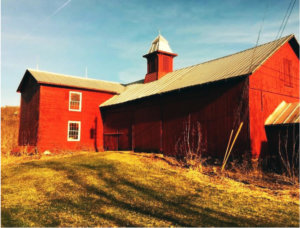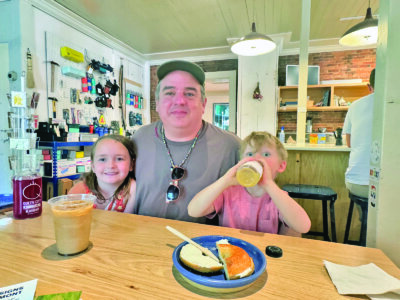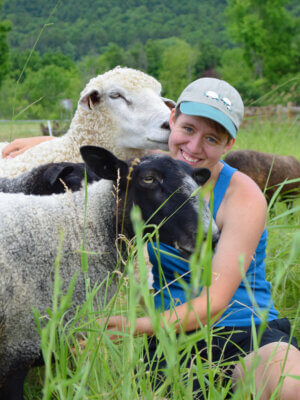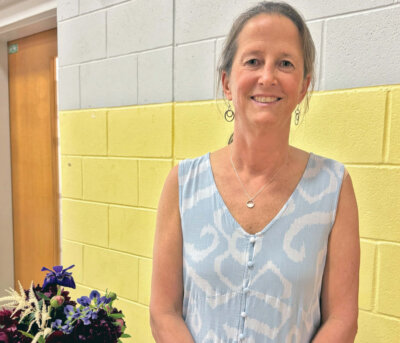UPDATE: Commission finds VSP committed racial, gender discrimination against Clemmons Family Farm director
Dr. Lydia Clemmons, director of the Clemmons’ Family Farm, suffered illegal racial and gender discrimination at the hands of Vermont State police, according to a 5-0 vote by the Vermont Humans Right Commission. The March 25 decision, which was not published until earlier this month, followed a three-year investigation and report compiled by attorney and commission investigator Nelson Campbell. News outlet Seven Days first reported the commission’s troubling findings.

The VHRC unanimously agreed that Dr. Clemmons, who is African American and a woman, was discriminated against by state troopers during a four-month period in 2017 when, pursuant to a court order, she requested police protection from Gregory “Grey” Barreda, a tenant she was in the process of evicting. Campbell found the VSP did not take Dr. Clemmons’ requests for assistance seriously and at times appeared to side with Barreda, an alleged criminal who fraudulently gained tenancy at the Clemmons’ farm by pretending to be a sheep herder.
In her complaint, Dr. Clemmons alleged the VSP’s failure to consistently enforce the court’s non retaliation and harassment order, a condition of Barreda’s release, was based on her race and gender, in violation of Vermont Fair Housing and Public Accommodations Act, 9 V.S.A. §4502(a).
The Clemmons Family Farm, was founded in the 1960s by Dr. Clemmons’ parents Lydia Sr. and Jack Clemmons and is the only Black-owned farm in Charlotte. The family residence, which is leased to a nonprofit, doubles as an African American Heritage and Multicultural Center and often hosts community events.
The investigative report is limited to Dr. Clemmons, and does not include her parents, who reside at the farm, because Dr. Clemmons was the person interacting with the VSP during the time in question and filed the complaint on her own behalf.
According to the report, Dr. Clemmons said she became suspicious of Barreda when he tried to pay his $1000 security deposit entirely with exotic silver coins. After researching the coins online and fearing they might have been stolen, Dr. Clemmons contacted law enforcement.
Dr. Clemmons’ hunch proved correct. Barreda was detained and charged with grand larceny for stealing $27,000 in coins from his former landlord in Windsor County. Following Barreda’s arraignment in September 2017, Judge Timothy Tomasi granted him conditional release with an order prohibiting any acts of retaliation or harassment against Dr. Clemmons.
Once free, Barreda immediately returned to the Clemmons’ farm to continue his tenancy. Dr. Clemmons began eviction proceedings against him, which Barreda fought.
According to Dr. Clemmons, Barreda violated the court’s non-retaliation and harassment order multiple times. She accused him of damaging farm property and creating a menacing presence by, among other things, breaking locks, tampering with smoke detectors, and placing guns, knives, and bottled urine in areas he was not authorized to be in. Barreda also allegedly ventured nude into common areas when Dr. Clemmons and others were present.
Barreda told police he felt Dr. Clemmons was the one harassing him.
In the period of September to December 2017, Barreda and Dr. Clemmons called the police on each other a total of 65 times. In redacted, internal emails released by the Vermont Dept. of Public Safety, Lt. Lucas described the situation as “madness” and seemed irritated by Dr. Clemmons’ requests for assistance.
Dr. Clemmons said she noticed the VSP became less supportive of her “from the day I complied with the VSP request to report to the Williston barracks with the [stolen] coins and surrender them as evidence.” She said the trooper’s response was “hostile to say the least” when she asked him for a receipt for the coins, which her brother had estimated to be valued at roughly $6,000.
VSP released a public statement on June 23 in response to the commission’s findings.
“While we respect the Commission and its important work, we disagree with its findings in this case and believe they are unsupported by the facts,” the statement read.
“The Department strongly believes that the involved troopers did not discriminate on any basis in the provision of law enforcement services.”
According to the statement, Vermont Dept. of Public Safety Commissioner Schirling contacted the HRC to express concern and disagreement with the legal conclusion of the case and with HRC’s decision to withhold their findings from the public.
In defense of their handling of the matter, the VSP claimed the court’s conditional release order was unenforceable because 1) there were errors on the initial order, and 2) because Barreda and Dr. Clemmons shared several common areas on the farm. Still, they said they charged Barreda with four violations of conditions of release and one count of unlawful trespass, proving no discrimination took place.
But Campbell found “behind the scenes” statements made by Lt. Robert Lucas of the Williston Barracks supported the existence of discrimination.
“Lt. Lucas could be friendly to Dr. Clemmons in emails … but internally, to subordinates, he expressed hostility and derision,” Campbell wrote.
In his discussions with other law enforcement personnel, Lt. Lucas reportedly portrayed Dr. Clemmons as uncooperative and “commandeering.” Campbell concluded Lt. Lucas “set an internal tone and an attitude towards Dr. Clemmons that the rest of the troopers who dealt with Dr. Clemmons and the situation followed.”
When The News asked Dr. Clemmons if she felt troopers had regarded her as “a hysterical female”, Dr. Clemmons said not quite.
“While ‘hysterical female’ is a sexist trope often used for white women, the more common sexist and racist trope used for Black women is “mad”, “crazy”, and so on,” Dr. Clemmons said. “While the Williston barracks troopers never once, to my knowledge, used the word ‘hysterical’ to describe me, the head of the Williston Barracks did use the phrase ‘stop the madness’ in an email he sent out to many of his troopers in reference to my request for a receipt for the estimated $6,000 worth of coins.”
Clemmons described her emails to the troopers as “straightforward, polite and respectful” and suggested it “might be worth some time to just have a look at those emails and juxtapose them against the term ‘madness’. It’s things like this that will hopefully help readers understand what racism and sexism look like.”
On December 28, 2017, Judge Robert Mello ordered Barreda to vacate the Clemmons Family Farm. In February 2019, an anti-stalking order against Barreda was extended for an additional three years.
“This case illustrates why people of color and women fear turning to the police, and distrust government agencies of all kinds,” Campbell wrote in the report.
Dr. Clemmons said Barreda has contacted her since leaving the farm but declined to elaborate.
The release of information surrounding the Barreda dispute could help shed new light on another issue involving the Clemmons’ farm: the placement of the Town Link Trail.
In a recent Selectboard meeting, Lydia Clemmons expressed opposition to a scoping study that proposed placing the town link trail on the edge of her family’s property. She said she feared the trail’s proximity to the farm could make it a target for racial hate crimes.
When The News asked if her concerns about the Trail were in part related to the Barreda matter, Dr. Clemmons responded: “Yes.”
While admitting she had received some “pushback” for her position on the Trail, Dr. Clemmons described Charlotte board members as “polite, respectful, careful in their choice of words, and doing their best to listen” to her concerns. She maintained the segment of trail at issue should be “weighed against the safety and security of an African American heritage site and the only Black-owned farm in the town of Charlotte. A place that offers community programs for children, adults, families in the arts and humanities.”
Dr. Clemmons noted the Trail is being built with the tax dollars of Charlotte residents.
“The Clemmons farm, meanwhile, pays annual property taxes and offers mostly free programs, free programs for the community through grants we receive from foundations,” she said.
Dr. Clemmons referred to Governor’s Scott’s “recent proclamation that the entire state – and every town in it – must adapt a welcoming stance for all people, regardless of race, color, national origin.”
The town of Charlotte should reflect this sentiment in its priorities, Dr. Clemmons said.
“At the end of the day, if family, staff, artists, volunteers and visitors of the Clemmons farm do not feel safe with a segment of the Town trail running in close proximity to the farm, and if there are viable options to move the Trail further away so that visitors, family, artists, can feel safer – then given all of these things we should be considering – what’s the problem?” she said.
VSP Public Information Officer Adam Silverman said the department had no further comment on the investigative report or the commission’s findings.
A scheduled press conference called by the Clemmons Family Farm to be held on June 28 was canceled without explanation. No new date has been announced.
Related Stories
Popular Stories
If you enjoy The Charlotte News, please consider making a donation. Your gift will help us produce more stories like this. The majority of our budget comes from charitable contributions. Your gift helps sustain The Charlotte News, keeping it a free service for everyone in town. Thank you.
Andrew Zehner, Board Chair









